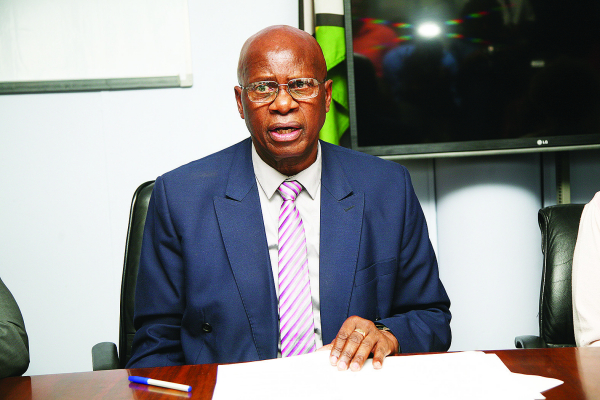
Bureaucratic bungling and lethargy on the part of top Treasury officials could have cost the country’s lucrative tourism sector millions of dollars due to the late registration of Zimbabwe at the International Tourism Bourse (ITB Berlin), which ended yesterday.
By Wisdom Mdzungairi in BERLIN, Germany
The late release of the funds resulted in the Zimbabwe delegation to the ITB Berlin failing to secure advance bookings, affecting the business of tens of local travel businesses that exhibited at the world’s biggest international travel and tourism fair.
NewsDay understands that the row, which pits Tourism minister Prisca Mupfumira and Zimbabwe Tourism Authority chief executive officer Karikoga Kaseke against Patrick Chinamasa’s Finance ministry’s top bureaucrats has sucked in Vice-President Constantino Chiwenga, who had to assign his principal director (monitoring and evaluation), Irene Molly Doroh, to deal with the issue.
The allegations of conflict of interest, bureaucratic bungling and lethargy in the hospitality industry have focused on the role of top Treasury officials (names withheld) in derailing the recovery of the lucrative tourism sector.
Mupfumira confirmed the fissures, saying she had engaged Chinamasa to understand the importance of tourism in the growth of the economy.
She added that the potentially explosive fall-out could scuttle efforts to revive the tourism industry.
“Indeed, we have a problem, but it’s a matter of educating and informing colleagues of the importance of tourism in the growth of economy. We’ve engaged the VP in charge of tourism and he understands. What we’ve to do is to educate our colleagues in government so the economic cake can grow. We’ll be continuing to engage our colleagues in government.”
- Chamisa under fire over US$120K donation
- Mavhunga puts DeMbare into Chibuku quarterfinals
- Pension funds bet on Cabora Bassa oilfields
- Councils defy govt fire tender directive
Keep Reading
But Kaseke had no kind words for the Treasury officials, whom he accused of political chicanery at the expense of the nation.
“We approached Treasury seeking our budgetary requirements, but the officials refused to process our funding,” he said.
“They refused to pay and had to use part of our salaries to ensure the nation was represented at this very important travel exposition not to miss. We might come to a travel show, but basically embarrass yourself by what you showcase. Look, South African tourism commits $2,5 million, yet the ZTA asked for $140 000, but could not get anything. An official in Treasury refused saying we cannot move the figure upwards, but must go back to the figures we had in 2016. If we don’t change, it means we don’t expect a change in the result.
“South Africa poured in R13 million (2017) into this market alone and got 310 Germans and each one of them spent $2 000 each, so you reap what you sow. If you can’t invest expect nothing in return.
“We came without confirmed bookings. The lost business opportunity is massive. There is always an opportunity cost, and Zimbabwe is not in the ITB Berlin catalogue because we booked late. It’s embarrassing. We’ve only received walk-ins, direct clients because we do not have any prior bookings. As ZTA, we are the adviser, (but) if our advice is not heard, then what?”
Kaseke said in their efforts to resolve the matter, they had asked Chiwenga to intervene, but nothing materialised.
“We went to the VP and his instruction was ignored. So what do we do? Do we go to the President? I don’t know, really, I don’t know. Are these guys focused on developing this industry? How is Zimbabwe open for business when we have this kind of attitude I wonder,” he said.
While the political challenges for Zimbabwe’s new leaders are stark, the impact on the country’s economy may be just as profound.











